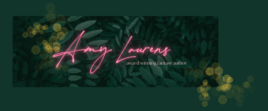Ten points if you know where that quote comes from 😉
This is something I meant to post a few weeks ago, and I’ve lost all of it now but the fundamental point. Never mind. It’s still worth noting.
Society has spent millenia praising and revering the intellect. Man is a creature of reason, we are told; all that separates us from animals is our ability to plan, to think, to rationalise. The people accorded the highest honour in our culture are the ones whose professions require great intellect, feats of mental gymnastics: traditionally, doctors, lawyers, pilots, bankers. These are the steadfast pillars of our society, the trusty, the reliable, the people who can witness documents for you. Because everyone knows that artists are flighty, actors are liars, and writers – well, they could make anything up.
The right side of our brain, home of creativity, imagination and to some degree, emotion, is not prized so heavily. There is a video I show to my creative writing classes about a man whose epilepsy was so bad, the doctors decided the only feasible course of action was to sever his corpus callosum, the bundle of nerve fibres that connect the two halves of your brain (fascinating video, only ten minutes, go watch it). It concludes with the scientific researcher noting that they have a saying around their lab: don’t leave home without your left hemisphere.
Personally, I would like to reject this implication. This statement is, in essence, saying that the only worthwhile human is one who can think, reason and observe. The right hemisphere is superfluous; we can get on perfectly well without it.
Ridiculous. A human who does not feel, who cannot empathise, who cannot imagine or create – what on earth kind of human is that? Not human, obviously – a robot. I think it’s telling that one of the most difficult factors in creating artificial intelligence that can pass for human is not in making a computer reason, but in making it imagine. People, let us not fool ourselves: sympathy, empathy, feelings, creativity, intuition, imagination – we can’t live without these things either.
Reason alone does not set us apart from animals – and even that is a claim that grows more tenuous by the hour. Chims make spears. Crows solve logic puzzles. Elephants craft fly swats. Dolphins use sponges, otters make nutcrackers, degus (small rodents) use rakes, and octopuses make coconut-shell armour. Dude. COCONUT-SHELL ARMOUR.
Art, culture, creativity – our right hemisphere is JUST AS IMPORTANT in constructing our identity as humans as our left hemisphere. (And, intriugingly, creativity sets us apart from animals in much the same way that reason does – i.e., tenuously. Dolphins play with bubble rings. Elephants can paint portraits of other elephants. Apes use sign language to communicate feelings). Why does society value it so little (comparatively)?
Possibly, because it seems untrustworthy. Creativity occurs largely in the realm of the subconscious, making it appear somewhat like magic at worse, and unpredictable and finnicky at best. Still. That’s no reason to dismiss half of what makes us human. I mean seriously. Come on.
I’ve remembered what inspired this: an article by Elizabeth Esther where she talks about the way that society shuns ‘overly emotional’ people. Sure, ‘overly logical’ people aren’t exactly a bundle of fun sometimes, but there is nowhere near the stigma against them, against interpreting a situation through our physical senses, as there is against emotional people, against interpreting life through the lense of our emotions. Which is stupid, because as noted above, the depth of our emotions separates us from animals just as much (or, yes, just as little) as the heights of our logical reasoning.
Fundamentally, I suspect, it’s got to do with the fact that we seek an unalterable objective reality – ‘truth’. Which again does nothing more than reveal our bias; we only strive to be objective (in essays, research, debates, etc) because we subjectively believe it to be important. But that is probably another post altogether; I’ve rambled definitely enough.
